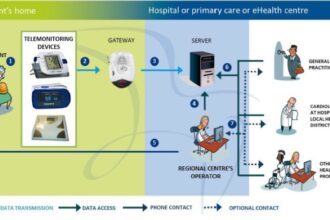With the growing complexity of healthcare services, managing staff performance and accountability has emerged as a critical challenge. The ability of healthcare systems to navigate these challenges directly impacts the quality of patient care and the overall sustainability of healthcare institutions. This article aims to discuss the strategies that can optimize management practices, thereby enhancing staff performance and promoting a culture of accountability.
Understanding the Current State of Healthcare System Management
Healthcare system management encompasses a wide array of practices designed to ensure that medical facilities operate efficiently and effectively. At the core of these practices is the management of human resources—nurses, doctors, administrative staff, and support personnel. Each member plays a pivotal role in the healthcare delivery system, and their performance can significantly influence patient outcomes.
However, several issues often impede optimal staff performance. These include unclear roles, inadequate communication channels, and a lack of proper feedback mechanisms. Such challenges lead to inefficiencies that can ripple throughout the entire healthcare system, diminishing the quality of care provided to patients and straining the system’s resources.
Moreover, accountability in healthcare is more than a buzzword; it is an essential component that ensures staff members are not only aware of their responsibilities but also adhere to high standards of medical care. When accountability falters, the consequences can be severe, ranging from medical errors to a loss of patient trust and legal liabilities.
The Role of Education in Enhancing Management Skills
One fundamental way to address the challenges of healthcare management is through advanced educational programs that equip staff members with the necessary skills to handle complex situations. For example, Master of Science in Nursing (MSN) programs are tailored to enhance leadership, decision-making, and critical thinking skills among nursing professionals. There are flexible options available, such as MSN nursing programs online, that can enable professionals to enhance their skills while managing other responsibilities. These programs offer courses in healthcare policy, ethics, and advanced clinical practices, all of which are essential for managers who need to oversee diverse and often interdisciplinary teams. The flexibility of online programs allows practicing professionals to advance their education without interrupting their careers, making it a practical solution for ongoing professional development.
More importantly, programs like these emphasize the application of knowledge to real-world scenarios, preparing graduates to implement evidence-based management practices that improve staff performance and accountability. This direct application of advanced skills fosters a more competent management body within healthcare systems, ideally positioned to tackle the prevalent issues of inefficiency and accountability lapses.
Implementing Technology Solutions for Better Management
In addition to education, technology plays a pivotal role in optimizing healthcare system management. Modern healthcare facilities increasingly rely on technological solutions like Electronic Health Records (EHRs) and advanced data analytics to monitor and enhance staff performance. EHRs, for instance, provide a centralized platform for accessing patient information, which enhances communication among staff and reduces errors related to poor information management.
Moreover, data analytics tools can analyze vast amounts of healthcare data to identify patterns, predict outcomes, and suggest areas for improvement. By leveraging these technologies, healthcare managers can gain insights into staff performance trends, identify potential issues before they escalate, and implement proactive measures to enhance accountability.
Enhancing Communication and Feedback Mechanisms
Establishing open, transparent, and continuous communication channels among all levels of staff not only boosts morale but also enhances the overall efficiency of healthcare operations. Regular staff meetings, open forums, and digital communication platforms can help ensure that every team member is on the same page, reducing misunderstandings and fostering a collaborative work environment.
Implementing structured feedback mechanisms is also crucial for maintaining accountability. Regular performance reviews, peer assessments, and patient feedback can provide valuable insights into staff performance, highlighting areas of excellence and those needing improvement. By actively engaging with feedback, healthcare systems can foster a culture of continuous improvement, ensuring that staff members grow with the organization and remain committed to providing high-quality care.
Structuring Incentives and Recognition Programs
Incentive and recognition programs are essential for motivating healthcare staff and promoting a positive work environment. These programs are designed to acknowledge the hard work and dedication of employees, which, in turn, boosts morale and encourages continued excellence in performance. For example, offering bonuses for zero errors in medication administration or recognizing the employee of the month for outstanding patient care can significantly enhance staff engagement and accountability. Such initiatives not only reward good practices but also set a benchmark for quality and efficiency that other staff members aspire to achieve.
Implementing these programs requires careful planning and a clear understanding of what motivates healthcare professionals. It is important to ensure that the incentives are fair, attainable, and aligned with the overall goals of the healthcare institution. This alignment helps to ensure that the incentives foster a team-oriented atmosphere rather than a competitive one, which is crucial in a setting where cooperation is key to patient care.
Conclusion
Optimizing healthcare system management requires a multifaceted approach. By enhancing education, implementing advanced technology solutions, improving communication and feedback mechanisms, and structuring effective incentive programs, healthcare systems can significantly improve staff performance and accountability.
Each of these strategies offers unique benefits, but when integrated effectively, they can transform the healthcare management landscape. This holistic approach ensures that healthcare professionals are not only well-equipped and motivated but are also held to high standards of accountability and ethical practice.
Healthcare leaders are encouraged to adopt these strategies, tailoring them to meet the specific needs of their organizations. By doing so, they can ensure that their institutions are not just places of healing but also exemplars of efficient, accountable, and high-performing healthcare delivery systems.
This proactive and comprehensive management approach promises a future where healthcare systems operate with enhanced efficiency and accountability, ultimately leading to improved patient outcomes and satisfaction. The journey toward such optimization may be complex, but the rewards—higher quality care, improved staff morale, and a robust healthcare system—are well worth the effort.







